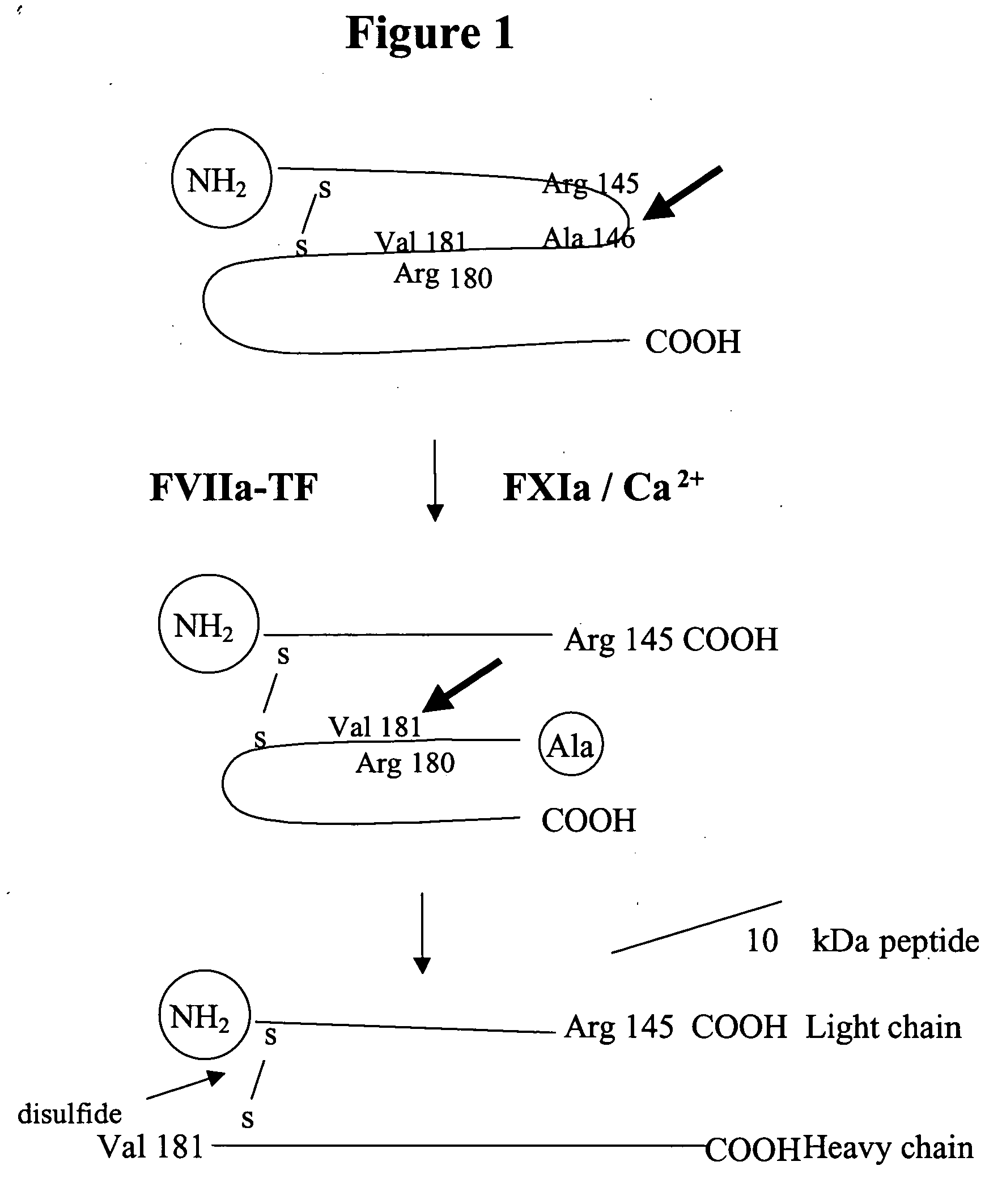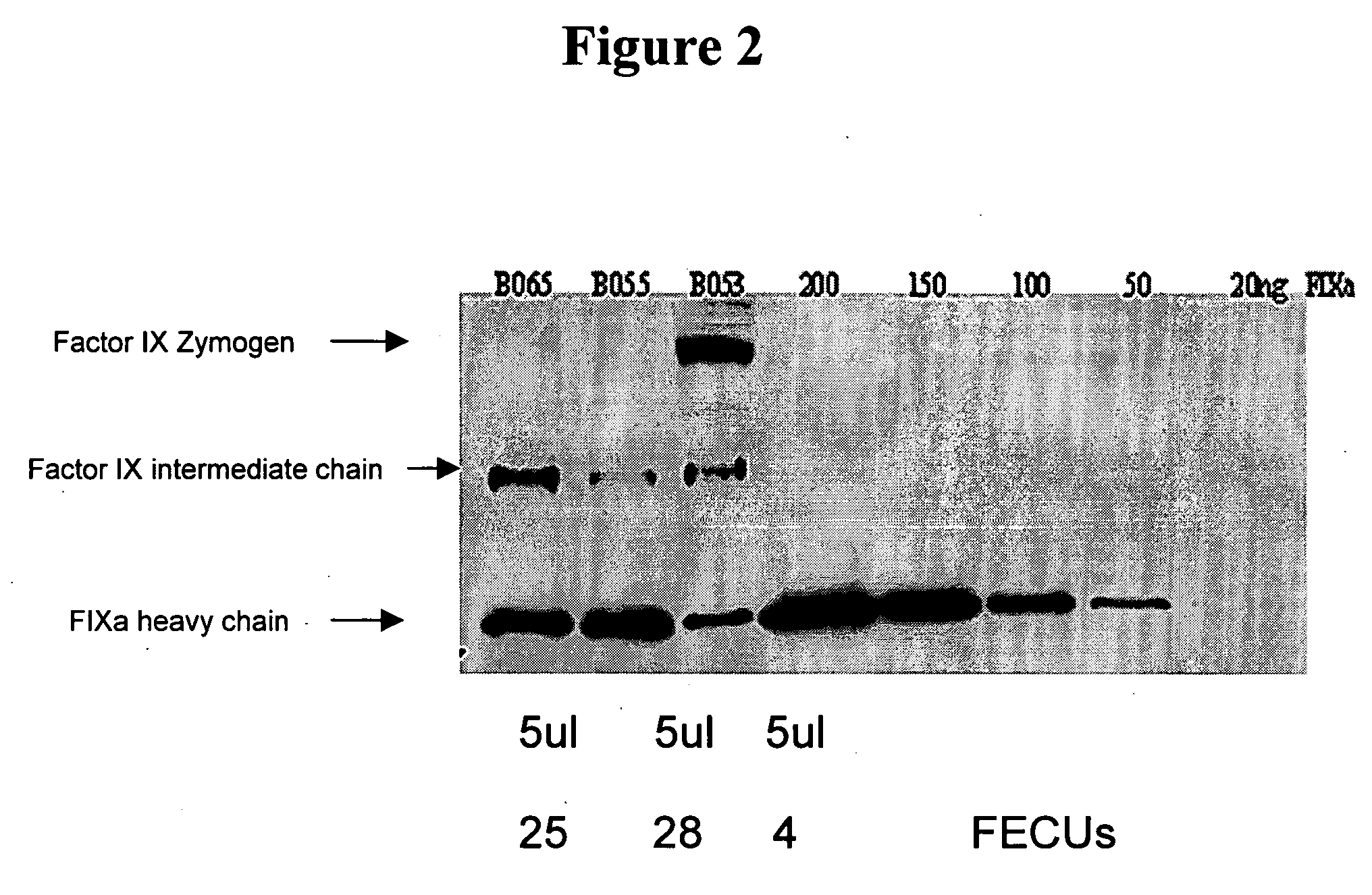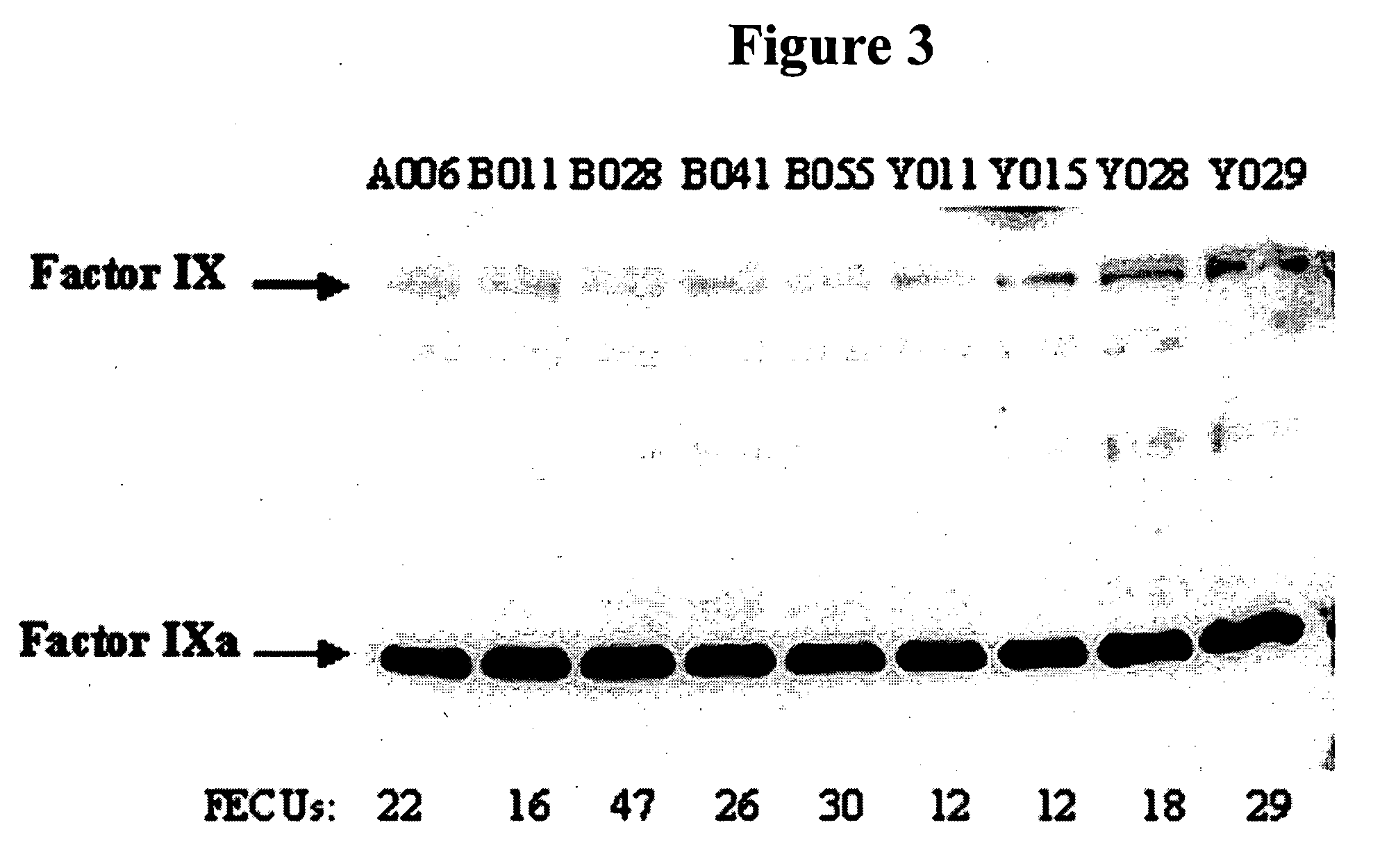Factor IXa for the treatment of bleeding disorders
a factor ixa and apccs technology, applied in the field of factor ixa, can solve the problems of apccs' precise in vivo mechanism of action, affecting the effectiveness of this treatment, etc., and achieve the effect of correcting the factor viii bleeding phenotype and clinical utility in treatmen
- Summary
- Abstract
- Description
- Claims
- Application Information
AI Technical Summary
Benefits of technology
Problems solved by technology
Method used
Image
Examples
example i
[0025] Sufficient amount of Fraction Cohn fraction IV-1 precipitate was suspended in 0.9% saline to make a 10% solution w / v. manufactured in typical fashion as described in U.S. Pat. Nos. 3,560,475 and 4,286,056. The pH was adjusted to 7.2 with 1N sodium hydroxide, creating sediment. After centrifugation, calcium phosphate was added to the supernatant. The solution was mixed and centrifuged to recover the calcium phosphate—adsorbed precipitate. The precipitate was resuspended in 0.1 M sodium citrate with a volume equal to 4% of the suspended IV-1 paste volume. The suspension was centrifuged and the supernatant, containing the coagulation Factors, was recovered.
example ii
[0026] This supernatant was adjusted to with 0.5 g / L silica for the time determined to reach a Factor XIa level of about 0.02 U / ml as measured by the S-2222 peptide based chromogenic assay with an aliquot described above. The activation was terminated by filtration of the mixture through a 1.5 micron filter.
example iii
[0027] The product from Example II was purified further by polyethylene glycol (PEG) precipitation. First, the solution was brought to 5% w / v PEG by the addition of PEG solid with an average molecular weight of 4000. The suspension was centrifuged, the pH of the supernatant was adjusted to 5.2 with 1N hydrochloric acid, then brought to a 20% w / v solution of PEG by the addition of additional PEG solid. This suspension was centrifuged, the precipitate dissolved in a 0.02 M sodium citrate solution containing 0.72% sodium chloride and 1.5 units heparin / ml (hereafter referred to as heparinized citrated saline), and the pH adjusted to 7.0. The potency of this material was determined to be 23 FECU units per ml.
[0028] In the FECU assay, one unit of FECU is defined as that quantity of activated prothrombin complex diluted 1:20 which, upon addition to an equal volume of Factor VIII deficient or FVIII-inhibitor-containing plasma, will correct the clotting time (ellagic acid—activated partial ...
PUM
| Property | Measurement | Unit |
|---|---|---|
| Fraction | aaaaa | aaaaa |
| Volume | aaaaa | aaaaa |
| Volume | aaaaa | aaaaa |
Abstract
Description
Claims
Application Information
 Login to View More
Login to View More - R&D
- Intellectual Property
- Life Sciences
- Materials
- Tech Scout
- Unparalleled Data Quality
- Higher Quality Content
- 60% Fewer Hallucinations
Browse by: Latest US Patents, China's latest patents, Technical Efficacy Thesaurus, Application Domain, Technology Topic, Popular Technical Reports.
© 2025 PatSnap. All rights reserved.Legal|Privacy policy|Modern Slavery Act Transparency Statement|Sitemap|About US| Contact US: help@patsnap.com



